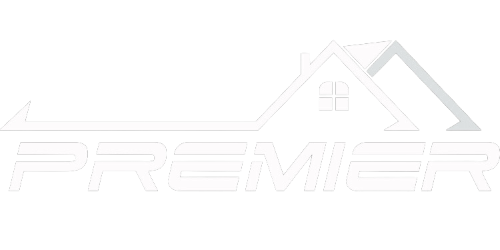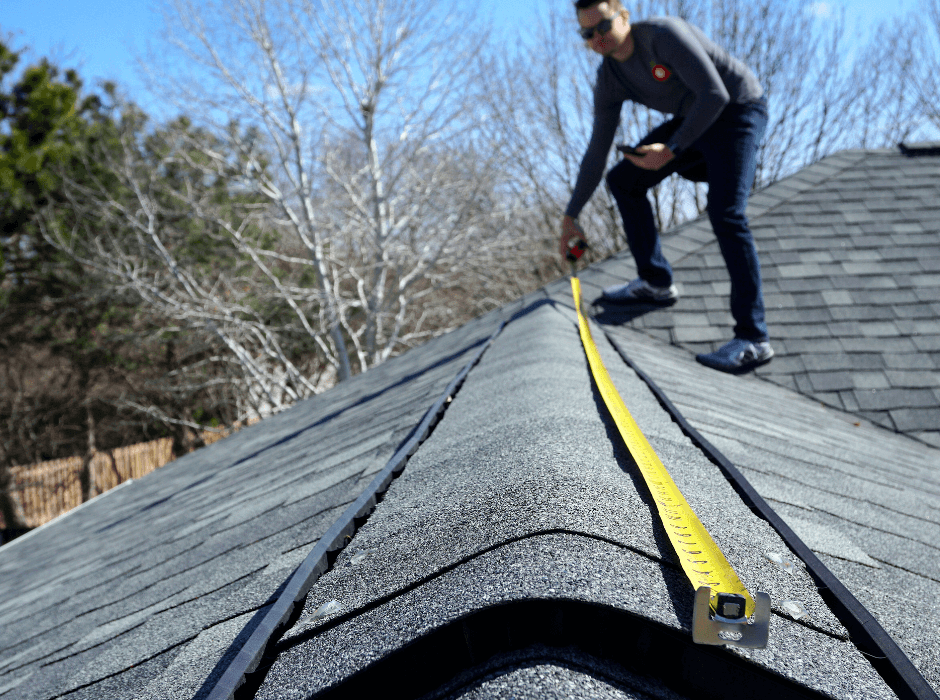- By Shanna Salazar
- Residential Roofing, roof inspection
- 0 Comment
What Does a Residential Roof Inspection Include?
A residential roof inspection is one of the most important maintenance steps a homeowner can take. Whether you’re preparing for a sale, dealing with storm damage, or staying ahead of costly repairs, a professional inspection reveals issues that aren’t visible from the ground. Below are the most common questions homeowners ask—and what you can expect during a thorough roof evaluation.
1. What do roofers look for during a roof inspection?
A professional roof inspection examines every part of your roofing system, including:
- Shingles or roofing material (lifting, cracking, granule loss, exposed nails)
- Flashing around chimneys, vents, skylights, and dormers
- Roof decking stability
- Ventilation and airflow
- Gutters, downspouts, and drainage
- Signs of leaks or water intrusion
- Evidence of storm damage (hail, wind, ice)
A full inspection identifies early warning signs before they become expensive fixes.
2. How long does a roof inspection take?
Most residential inspections take 30–60 minutes, depending on roof size, pitch, and accessibility. If your home has multiple levels, dormers, or skylights, expect the inspection to take longer.
3. Do inspectors check the attic?
Yes—attic inspections are one of the most important parts of the process. In the attic, roofers check:
- Insulation levels
- Moisture, mold, or mildew
- Ventilation quality
- Wood rot or soft spots
- Signs of past or active leaks
The attic often reveals damage long before it appears on the roof surface.
4. What tools do roof inspectors use?
Depending on the company and roof conditions, inspectors may use:
- Moisture meters
- Thermal cameras
- Drones for aerial imaging
- Chalk or markers for hail impact assessment
- Roof gauges to measure shingle condition
Advanced tools provide more accuracy and documentation for insurance claims.
5. Will I receive a written inspection report?
Most reputable roofing companies provide a detailed written or digital inspection report, including:
- Photos of damage
- Recommended repairs
- Estimated remaining lifespan
- Suggested maintenance steps
- Whether the roof qualifies for an insurance claim
A clear report helps you make informed decisions about your home.
6. How often should I schedule a residential roof inspection?
Homeowners should schedule inspections:
- Once per year for preventative maintenance
- After severe storms (wind > 50 mph, hail, or heavy snow)
- Before buying or selling a home
- If you notice missing shingles or interior water stains
Regular inspections protect your home and extend roof life.
7. How much does a roof inspection cost?
Costs vary by region and roof size, but most inspections range from free to $150. Some roofing contractors offer complimentary inspections in hopes of earning your repair business.
8. Will a roof inspection help with insurance claims?
Yes—inspection documentation is critical for storm-related claims. Roofers identify:
- Hail impact areas
- Wind-lifted shingles
- Water intrusion
- Structural or decking concerns
A thorough report strengthens your insurance claim and speeds up approvals.
9. What are the most common issues found during inspections?
Typical findings include:
- Missing or cracked shingles
- Granule loss
- Exposed or rusted fasteners
- Damaged flashing
- Clogged gutters causing water backup
- Weak or compromised decking
- Poor ventilation leading to heat/moisture damage
Catching these early prevents leaks and structural damage.
10. What happens after the inspection?
You’ll receive:
- A complete summary of the roof’s condition
- Repair recommendations
- Photos of any issues
- An estimate for repairs or replacement
- Maintenance suggestions to extend roof lifespan
This helps you understand your roof’s health and next steps.
Schedule Your Residential Roof Inspection Today
A professional inspection is the easiest way to protect your home, prevent leaks, and avoid expensive repairs down the line. Whether you’re concerned about storm damage or simply want peace of mind, a detailed roof evaluation gives you the clarity you need.
Contact us today to schedule your residential roof inspection.


